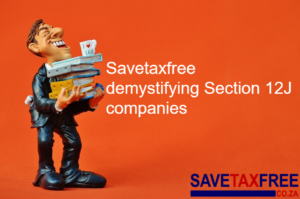TFSAs – is the increased annual limit anything to write home about?
Related Articles
Nonhlanhla Kunene | 09 March 2017
The tax-free annual limit has been increased to R33,000 a year from R30,000. It seems persistent calls for their increase did not fall on deaf ears after all.
While both investors and providers welcomed the move announced in the budget, there are mixed feelings as to whether or not an increase in the annual limit alone will have any significant impact, given that the lifetime limit of R500,000 remains unchanged. If investing the full amount each year, tax-free investors will now take just more than 15 years to reach the lifetime limit whereas previously it took just under 17 years.
Every little bit helps
Nikki Louw, head of marketing and distribution at Clucas Gray Asset Management, believes every little bit helps. “We have to encourage a society that saves for its future and tax-free savings are the perfect instrument for us to do just that. In the UK the annual limit has been increased significantly since its inception and I would assume that South Africa will follow suit, providing growth of the incentive takes hold.”
Louw says the UK does not impose a lifetime limit on investments, something she hopes SA will look into. She does, however, feel that it’s too soon for too much concern as SA is only two years into the initiative, and based on the new limit, still has many years to enact change.
Richard Carter, head of product development at Allan Gray, does not share the same optimism, stating outright that the increase is “a little disappointing”.
Carter agrees that when things are tight, it is expected that National Treasury budgets carefully, but he believes tax-free investments are encouraging more people to save and feels the increase could have been more significant without having a major negative impact on the fiscus.
Going to make a difference, but not much
Retail manager at Sygnia Asset Management, Lorna Knoetze, feels it’s a case of give and take, highlighting the fact that there was no increase in exemption on interest earned on savings and investments for the year. She feels the limit increase will benefit wealthier investors who exceed their exemptions as they’ll now have more room for tax-free growth through tax-free investments.
For tax-free savers, she believes the extra R3,000 a year will make a difference as the compound growth will increase, and investors can reach their lifetime limits faster. If the lifetime limit remains unchanged however, she feels the accounts will not a significant impact on savers’ lives in the long term. She does, however, share Louw’s sentiments that there may be further changes with time.
A perfect starting point
Despite the mixed feelings expressed by the industry, Louw still believes tax-free savings accounts are an ideal starting point for any individual’s saving scheme and feels parents should be using them to build equity for their children.
For Knoetze, who feels the accounts are merely making the rich wealthier, the idea of parents using tax-free investments to save for their children is a bit of a controversial one. She feels that tax-free investments have missed the target in terms of the market they were originally intended for. “It’s shocking when you consider these accounts were targeted at the lower income segment. Instead you’re getting wealthier people opening multiple accounts meant for their children. While the rules do stipulate that the money can only be transferred into that child’s personal bank account, there is a loophole in the system because when parents open accounts for minors, as legal guardians, they still have control over those accounts.
Knoetze believes the best way these accounts can reach the lower-income segment effectively would be to make them available only to individuals falling within a certain income bracket.






